#London Metropolitan Police
Text





Ferrari 512M, 1994. A Ferrari that was stolen from F1 driver Gerhard Berger 28 years ago has been recovered by the Metropolitan Police in London. The car was one of 2 stolen during the San Marino Grand Prix in 1995. Police who have traced the car's history believe it was shipped directly to Japan after the theft. More recently the car was offered for sale in London but its patchy history raised suspicions. The London Metropolitan Police’s Organized Vehicle Crime Unit carried out a global investigation. “Our enquiries were painstaking and included contacting authorities from around the world,” said Police Constable Mike Pillbeam, who led the investigation. “We worked quickly with partners including the National Crime Agency, as well as Ferrari and international car dealerships, and this collaboration was instrumental in understanding the vehicle’s background and stopping it from leaving the country.” The car's estimated worth is £350,000 (around US$444,300) and though enquiries are ongoing as yet not arrests have been made.
#Ferrari#Ferrari 512M#stolen car#London Metropolitan Police#mid-engine#flat 12#Gerhard Berger#1994#1990s#stolen#recovered#video
132 notes
·
View notes
Text
fuck those racist shitbags
4 notes
·
View notes
Text
Catch Me if You Can: London Police Apprehend Terrorism Suspect
London's Metropolitan Police successfully capture Daniel Khalife, a terrorism suspect who escaped from a high-security prison. Explore the intriguing story of this audacious breakout and the implications it raises about security.
#headline horizon#news#latest news#London Metropolitan Police#terrorism suspect#high-security prison
0 notes
Text
London’s Metropolitan Police has come under criticism after footage emerged showing an officer telling a Jewish woman that swastikas seen at a pro-Palestinian protest should be “taken in context”.
A clip shared widely online appeared to show a London police officer suggesting that under certain circumstances swastikas paraded in public could be legal, despite Britain’s tough restrictions on so-called hate speech.
In the clip filmed at a pro-Palestinian rally on Saturday, the officer was heard telling a Jewish woman: “I don’t have an in-depth knowledge of signs and symbols. I know the swastika was used by the Nazi party during their inception and the period of them being in power in Germany in 1934… I’m aware of that.”
“So under what context is a swastika not disrupting public order? Could you just explain under what symbol that is not disrupting public order?” the woman asks.
“I haven’t said anything about it that it is or it isn’t. Everything needs to be taken in context doesn’t it,” the officer replied.
“I’m confused about in what context a swastika is not anti-Semitic. This is what I want to know,” the exasperated woman shot back.
“Why is a swastika not immediately anti-Semitism? Why does it need context? This is what I’m confused about. This isn’t even about Israel. In what context is a swastika not anti-Semitic and disruptive to public order?” she questioned.
“I suppose to some I don’t know how everybody would feel about that sign. Now if you came up to me and you felt mass alarm and distress about a symbol that someone was…” the officer responded.
38 notes
·
View notes
Text
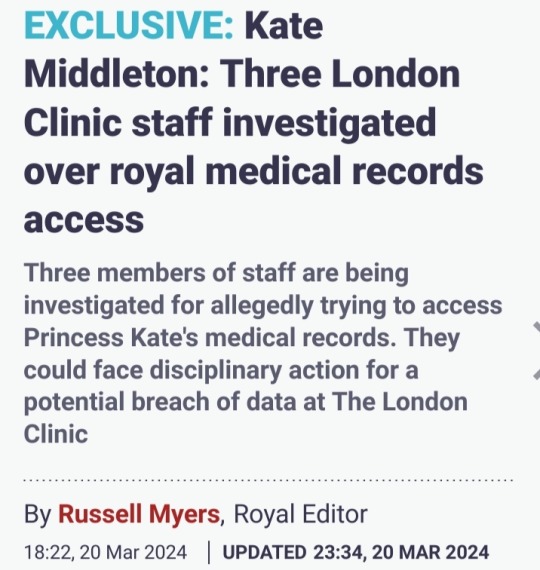
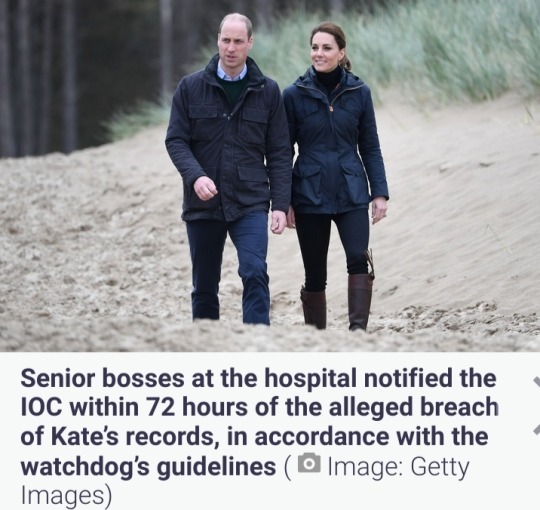
Scotland Yard could be called in to investigate an alleged breach of the Princess of Wales’s private medical data.
The world-renowned London Clinic in Marylebone where the Princess of Wales underwent abdominal surgery in January, launched an investigation amid allegations staff attempted to access her private medical records.
After The Mirror’s world exclusive was picked up around the world this week, sources have said tonight that “up to three people” could be involved in the alleged accessing of Catherine’s medical records.
In a further bombshell, it can be revealed that the alleged breach took place after the future queen was discharged from hospital on January 29, as social media exploded with outlandish and hurtful conspiracy theories relating to her surgery.
Sources said the criminal investigation, described as “unprecedented” and now being run by the Information Commissioner's Office (ICO), could run alongside an additional probe by the Metropolitan Police.
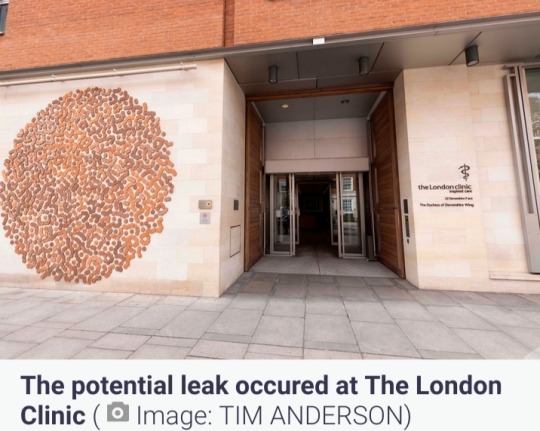
Accessing someone’s medical records without cause or consent can be a criminal offence.
If the ICO investigates and finds evidence that medical records were accessed illegally, it can take action, including prosecuting and fining the person responsible in court.
The development came amid a new statement from the CEO of the The London Clinic, who said:
“There is no place at our hospital for those who intentionally breach the trust of any of our patients or colleagues.”
A source said:
“This is such a unique case that a police investigation could run alongside one by the Information Commissioner's Office.
The IOC will deal with anything as a criminal matter, which could end up in a Magistrate’s Court, but if there were further claims of wrongdoing such as a conspiracy to distribute illegally accessed information, then that could be a matter for the police.”
Scotland Yard has also been urged to launch an immediate investigation, alongside the IOC probe, over fears of a potential royal blackmail plot.
Dai Davies, the former chief superintendent and head of the royal protection unit, said:
“Anyone accused of this most serious breach of trust should be interviewed under caution at the earliest opportunity.
The implications for the royal family are far and wide, and there must be a full probe by Scotland Yard to determine if any further crimes have been committed.”
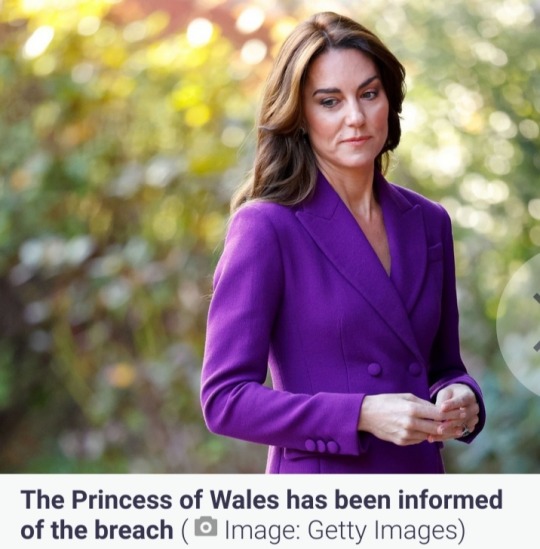
The Met Police said it had not yet received a referral, but Health Minister Maria Caulfield said today that she understood “police have been asked to look at it.”
Speaking to Sky News, she said it was "pretty serious stuff to be accessing notes that you don't have permission to."
She added:
"I say this as someone who's still on the nursing register, that the rules are very, very clear for all patients.
That unless you're looking after that patient, or they've given you their consent, you should not be looking at patients' notes.
So there are rules in place and the Information Commissioner can levy fines, that can be prosecutions, your regulator.
So as a nurse, my regulator would be the NMC (Nursing and Midwifery Council), can take enforcement action….and can strike you off the register if the breach is serious enough.
So there are particularly hefty implications if you are looking at notes for medical records that you should not be looking at."

Asked if the police should look into the matter, she said: "My understanding is that police have been asked to look at it - whether they take action is a matter for them.”
Fears that the King’s private medical information had also been compromised were dismissed tonight, after Charles spent three nights at the hospital during the same period as the Princess of Wales after undergoing an operation for an enlarged prostate.
Sources confirmed bosses at the hospital had informed Buckingham Palace that the alleged breach being probed did not involve the monarch.
Charles and Catherine were discharged separately just hours apart on January 29.
The King was subsequently diagnosed with “a form of cancer,” announced by Buckingham Palace on February 5.
Senior bosses at the hospital notified the IOC within 72 hours of the alleged breach of Kate’s records, in accordance with the watchdog’s guidelines.
Despite global speculation over the nature of the princess’s surgery, which has sparked wild conspiracy theories across social media and international news outlets, Kensington Palace has gone to great lengths to protect her privacy.
The palace said when Catherine was admitted that she would spend two weeks in hospital and not return to royal duties until after Easter as she continued her recovery at home.
Sources suggested the princess may decide to join the royal family on a scheduled walk to church on Easter Sunday, but no decision had yet been taken.
As the crisis intensified today following The Mirror’s revelations, Al Russell, the CEO at The London Clinic, added:
“Everyone at The London Clinic is acutely aware of our individual, professional, ethical and legal duties with regards to patient confidentiality.
We take enormous pride in the outstanding care and discretion we aim to deliver for all our patients that put their trust in us every day.
We have systems in place to monitor management of patient information and, in the case of any breach, all appropriate investigatory, regulatory and disciplinary steps will be taken.”
The General Medical Council (GMC), which regulates doctors, also said patients must have confidence that their personal information is protected "at all times."
A spokesman for the Prime Minister said:
“Clearly there are strict rules on patient data that must be followed. I think we all want to get behind the Princess of Wales and Prince of Wales and we wish her the speediest of recoveries.”
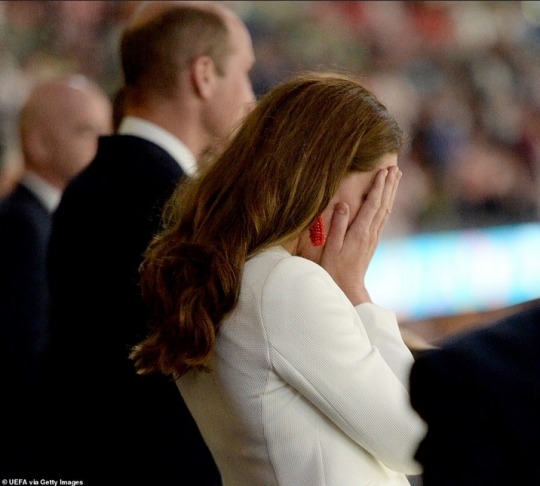
#Princess of Wales#Catherine Princess of Wales#Catherine Middleton#Kate Middleton#Prince William#Prince of Wales#King Charles III#British Royal Family#Scotland Yard#Information Commissioner's Office (ICO)#Metropolitan Police#medical records#breach of medical records#royal blackmail plot#Health Minister Maria Caulfield#Al Russell#General Medical Council (GMC)#medical records access#Met Police#Buckingham Palace#Kensington Palace#The London Clinic#saint of the day#medical data breach
10 notes
·
View notes
Text
by Dion J. Pierre
London’s Metropolitan Police Service (MPS) on Friday responded to allegations that officers threatened to arrest members of a British nonprofit for “breach of peace” if they continued to display billboards showing pictures of Israeli children who are believed to have been taken hostage during Hamas’ invasion of Israel on Oct. 7.
Campaign Against Antisemitism (CAA), a nonprofit that tracks antisemitic hate crimes, made the complaints against the police. According to the Jewish Chronicle, the nonprofit had organized a convoy driving through London displaying images of the Israeli children in order to draw attention to the Palestinian terror group Hamas’ atrocities.
However, the convoy was stopped on Wednesday by anti-Israel protesters who began heckling and intimidating them. When police officers came, they asked the CAA convoy to shut off its billboards and leave the area.
“The officers told our drivers to turn off their billboard and stop showing the faces of children kidnapped by a proscribed terrorist organization, apparently because their sympathizers on British streets might attack us for showing them,” CAA executive director Gideon Falter said in a video posted to the organization’s X/Twitter page after the encounter. “Before we set out, we had worried that these billboards might attract attention from Hamas sympathizers. We never imagined that it would be the police who would stop us from showing the faces of children kidnapped by a terrorist group banned by the UK government.”
MPS shared with The Algemeiner a statement explaining the officers’ actions, insisting that it was not their intent to squelch a lawful demonstration.
“Officers were keen to avoid the billboard vans becoming a point of tension or conflict,” MPS said. “We took similar actions on Saturday where we prevented pro-Palestinian demonstrators from reaching the area around the Israeli embassy given their doing so would likely have led to an escalation in tension and a possible risk to public safety.”
MPS also vowed to review the matter and determine “what we might do differently should a similar situation arise again.”
CAA has said it may take legal action.
19 notes
·
View notes
Link
It might seem bizarre that after everything we’ve learned about the Met in the last few years, some police officers still think they’re the victims. But it comes back to the idea of policing by consent. If the police really are ‘citizens in uniform’, carrying out necessary if unpleasant tasks on behalf of a public whose values they share, then it follows that they need the kind of support that Donnelly and his colleagues ask for. By this logic, criticism of the police is either illegitimate or irrational. The problem must be one of perception. But what if the criticism is based on people’s actual experience of policing? In his account of the way Black communities in the UK have responded to discrimination and violence by the police, the anti-racist activist Adam Elliott-Cooper recalls the time he spent volunteering at a youth centre in a multi-ethnic, working-class part of Nottingham. He was surprised to find that the young people there were unmoved by general discussions about racism. ‘But as soon as we mentioned policing, something clicked,’ he writes. ‘Policing was an obstacle that was in their immediate reality, with stops, questioning and searches a common occurrence, making arrest and imprisonment a constant threat.’
For many of the people Elliott-Cooper writes about, being policed has never felt much like consent, more like being on the receiving end of the militarised form of policing Britain employed in its colonies. Whatever else policing might do, it’s about enforcing order – order that maintains the existing hierarchies in society. Almost half of London’s population is Black, Asian or minority ethnic, yet just 15 per cent of Met officers come from those backgrounds. Women officers remain in the minority. This disparity comes across most clearly in the different ways officers experience the Met’s internal culture. Donnelly sees its rigidity as an essential part of policing: the military-style parades and rote learning – of laws, street names, holds, self-defence techniques – at the Met’s training college in Hendon formed a ‘spirit of selflessness and teamwork ... that bound us closely as a class ... and underlined the strong sense that we were part of something much bigger and more important than ourselves’. By contrast, Leroy Logan, a founding member of the Black Police Association – the story of his early days in the Met was dramatised by Steve McQueen in the Small Axe series – recalls that his fellow recruits ‘saw things in a very “them and us” way, with the police being the “us” and the rest of the public as “them”’. The job ‘seemed to attract people who are quite set in their ways, very narrow in how they perceive others, and who enjoy sticking very rigidly to the occupational cultural rules of always backing up your mates and defending the Met regardless; a form of blind loyalty’.
Other former officers describe how sexist and racist banter function as a kind of loyalty test. Alice Vinten, a constable in the Met during the 2010s, was told by a male colleague in front of a group that he’d like to ‘jump her bones’. She laughed it off with an eye-roll: ‘I’d learned early on that, as a woman in the force, you had two choices against the constant barrage of sexual innuendos and sexist remarks. Take them, or get ostracised.’ Parm Sandhu had to put up with frequent jokes about her ethnicity. ‘Our little black or brown faces were OK if we kept quiet and stayed in the crowd,’ she writes, ‘but as soon as any of us became “uppity”, we had to be reminded of where we stood.’ Both Sandhu and Logan say this attitude persisted higher up the ranks. When Carol Howard, a Black firearms officer, joined the Met’s Diplomatic Protection Group, she was bullied by her line manager (Couzens and Carrick both worked for the group). She won a discrimination case in 2014; a remedy hearing found that the Met had responded to the ruling by trying to smear her as a ‘child predator’.
Some officers have recently started posting images of the ‘thin blue line’ symbol – a blue line running horizontally across the Union Jack – on social media or wearing it on badges to commemorate colleagues killed in the line of duty. Police officers are generally banned from displaying political symbols, but a report by the Institute of Race Relations last year characterised use of the symbol as an effort to recast the police as a ‘besieged and misunderstood minority group’. It pointed out that the equivalent symbol in the US is associated with white nationalism and the far-right backlash to Black Lives Matter.
44 notes
·
View notes
Link
London's hidden hand
#Rothschild#finance#London#British Isrealism#Zionism#settler colonialism#Israel#Palestine#Gaza#complicity#culpability#genocide#ethnic cleansing#apartheid#Metropolitan Police
5 notes
·
View notes
Text
10 notes
·
View notes
Text
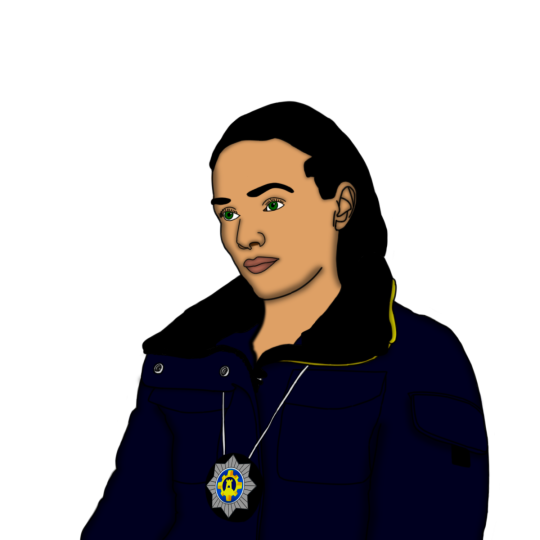


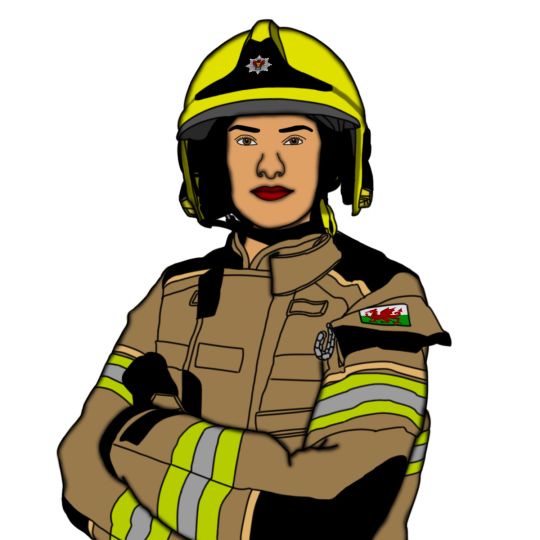

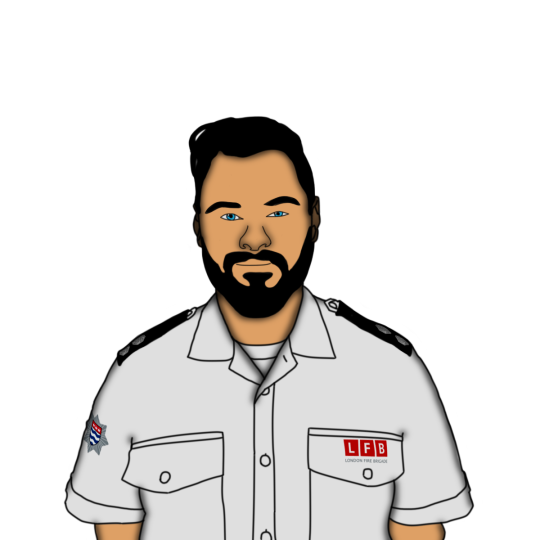

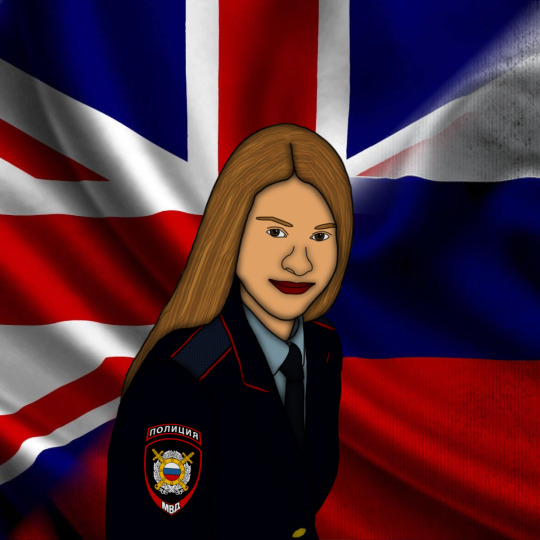


A couple of New OCs for my AU of the Fireman Sam Series. They are First Responders and top Government agents who work closely with the Pontypandy Emergency Services. Here are the names of each one and what they do. We have DC Maya Lee who is a Detective with Newtown Police/Heddlu Drenewydd, Michelle Jones and Lewis Harrelson who are Special Agents with the Secret Intelligence Service (MI6), PC Leah Richards who is a Police Officer with South Wales Police/Heddlu De Cymru, Firefighter Jade Myers who is with the South Wales Fire and Rescue Service/Gwasanaeth Tân ac Achub De Cymru, Firefighter Kyle Higgins who is a Firefighter with the London Fire Brigade, Station Officer Kenneth Lane who is a Station Officer with the London Fire Brigade, Commander John Rimmer who is a Police Officer with the Metropolitan Police Service, Anastasia Orlóva (Анастасия Орлова) who was a Police Officer in the Russian Police (Полиция России), Juliana Diaz who is a School Safety Agent with the New York City Police Department (NYPD), and Stacy Mendez who is an officer with ths U.S. Customs and Border Protection under the U.S. Department of Homeland Security.
#fireman sam#oc art#nypdofficer#nypd#uscbp#dhs#cbp#police#metropolitan police#russian police#newtown#south wales#fire and rescue#mi6#london#lfb#station officer#united states#united kingdom#russia#new york#nyc
5 notes
·
View notes
Text
Met police found to be institutionally racist, misogynistic and homophobic | Metropolitan police | The Guardian
"The report by Louise Casey, commissioned by the Met after one of its officers abducted Sarah Everard, taking her from from a London street in March 2021, before raping and murdering her, is one of the most damning of a major British institution."
File under "in news that surprises no one"...
6 notes
·
View notes
Video
#Metropolitan#police#Cyclist#London#2016#SEIFRACING#SPOTTING#security#COPS#CAR#VEHICLES#VAN#VOITURE#TRANSPORT#TRAFFIC#BRITAIN#BRIGADE#BRITISH#POLIZEI#POLIZIA#flickr
2 notes
·
View notes
Text
Who counts as a cyclist in London?
“BikeStormz regularly attracts hundreds of young, majority male cyclists – thousands when it comes to its annual central London ride against knife crime. The point of the project is to take kids away from where the blaze – the potential for violence – is hottest, Ferrari-Guy explains at one point in the film. This means physically removing people from hotspots where trouble can occur and bringing them into a community that offers respite and an alternative path forward. On a shoestring, BikeStormz is attempting to plug a gap left by the erosion of social services and spaces for young people. That’s not how the authorities see it, though.
“Captured on camera is the real-time attempt to criminalise BikeStormz riders by various authorities. In one scene, Ferrari-Guy is shown in a meeting with an unnamed Met police branch discussing complaints made about BikeStormz. A white, middle-aged male officer reels off grievances. The size of BikeStormz rides is creating ‘significant community tensions’, he says. Youngsters on their bikes are ‘intimidating’, and their behaviour ‘bordering on the criminal’. He cites graffiti, littering, and even wheelies as problems.
“Repeatedly, the officer emphasises the distress BikeStormz is causing to ‘members of the public’. The young cyclists participating in the ride, it’s clearly conveyed, don’t belong to this group. Instead, they threaten it – and wider social order.”
#knife crime#black people#brown people#asian people#ethnic minorities#minorities#young people#cycling#youth services#cuts#metropolitan police#the met#police#inner city#cities#london#uk#politics
4 notes
·
View notes
Link
What Casey describes are two separate but fatally overlapping failures of leadership at the Met. The first involves the now distressingly familiar story of a toxic working culture within elite specialist units, including the Met’s parliamentary and diplomatic protection command – the dark corner where Everard’s killer and his rapist colleague lurked undetected, even though, as Casey says, “enough was known about both men to have stopped them so much earlier” – and a firearms unit notorious for its machismo, suspiciously generous expenses and apparent sense of being a law unto itself.
But the second is more nuanced, involving a demoralised frontline police force overwhelmed by the kind of complex sexual and domestic violence cases once handled by trained specialists, but now dumped on inexperienced public protection teams, apparently for cost-saving reasons. (The Met’s budget is 18% smaller in real terms than a decade ago.) The inevitable result is a dismal prosecution rate, traumatised victims, and burnout rates among shortstaffed detectives juggling dozens of rape and sexual offence cases that were worse than those of NHS workers during Covid.
3 notes
·
View notes
Link
The Metropolitan Police have reportedly dropped their investigation into an antisemitic attack on a bus of Jewish teenagers in Central London during Chanukah last year.
The investigation into the widely-condemned attack was dropped in July after police were unable to identify the people in the video, according to a Met Police statement.
Police say that they issued three appeals in total to identify the alleged perpetrators, but of the names provided to officers, all were eliminated from the investigation.
In a statement to the Jewish News, the Met Police said: “On 29 November 2021, officers responded to calls about antisemitic abuse being directed at passengers on a private bus in Oxford Street by a group on the pavement outside.
“The bus left the scene of the incident to avoid further confrontation and officers met it nearby. The suspects had also left the area and could not be located.
15 notes
·
View notes